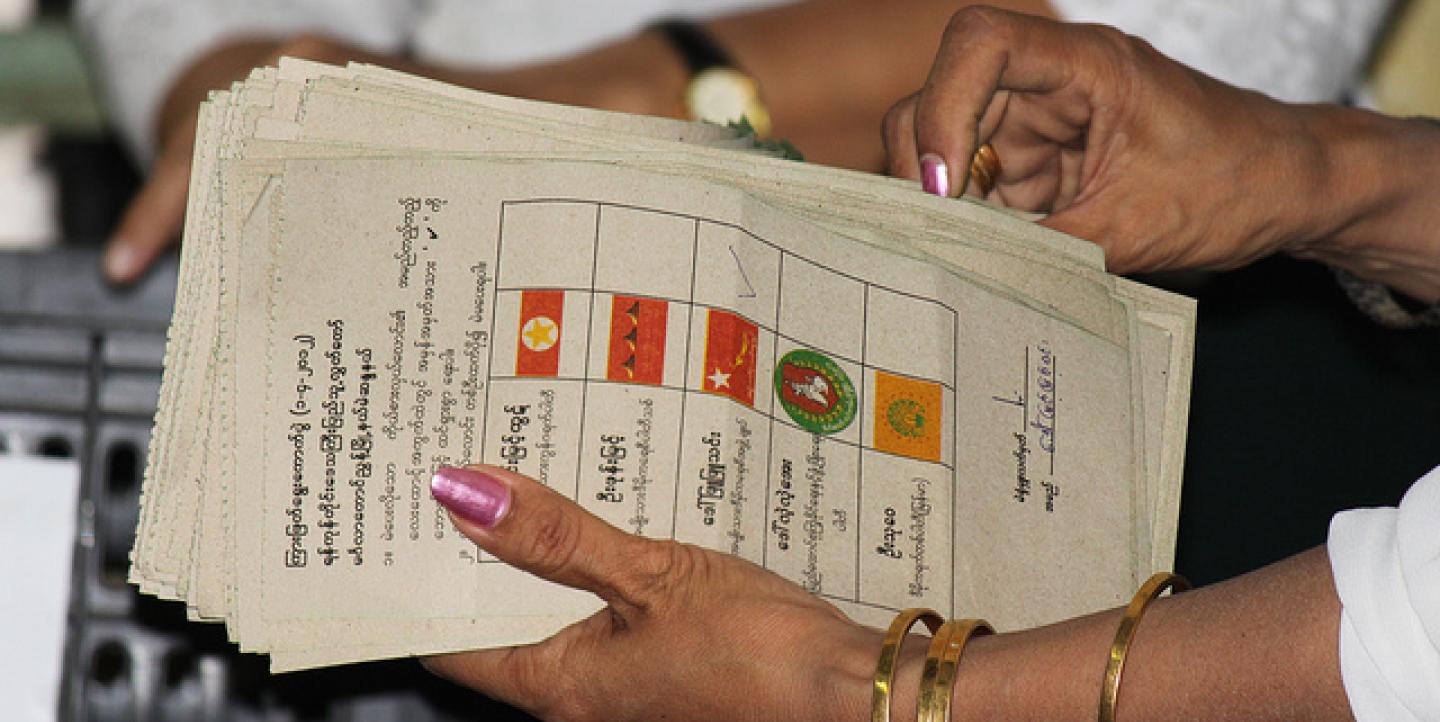How open and fair will parliamentary elections be next fall in Myanmar, a country emerging from military rule and economic stagnation?
That’s the question being asked by Myanmar's people and international observers alike. They are hoping the media, emerging from decades of government censorship, will keep citizens informed by reporting thoroughly and fairly with no personal bias and under no harassment from officials. And they hope journalists will report not only on political parties and candidates but also on key voter issues and election transparency.
A recent ICFJ election-reporting workshop in Yangon, Myanmar, covered many aspects of fair coverage, and we've rounded up the tips below. The tips apply not only to the Myanmar elections but also to election reporting everywhere. Some of the tips:
Think citizen. Covering an election is much more than reporting on candidates and their issues. Citizen’s issues matter most. Find out voters’ top concerns, then send their questions to the political parties to address. The reverse shouldn’t happen with only candidates’ issues being presented. Citizens are the crucial players in elections: they vote.
Know the election laws. They are the road map for how parties can form, who can run for office, what boundaries make up electoral districts and how election violations will be handled.
Follow the money. Track how the election is being funded, where candidates and parties are getting their support and whether election laws on party and candidate financing are being followed.
Study voter registration procedures. Know how lists of registered voters are being drawn up and if voters left off can get on the list with proper identification. Compare procedures to international standards. Investigate whether restrictions have been placed because of a citizen’s gender, race, family or religion, and whether a fee is required to register.
Fact check everything. In campaigns, candidates and parties spew all kinds of statistics. Take nothing at face value; check every statement, such as how a candidate's promises today correspond with what he or she said in the past. Develop a contact list of trusted experts and institutions early in the game -- domestic and international -- with whom to check candidate and party assertions.
Treat polls with caution. Public opinion polls are a staple of campaign coverage, but reporters must ask many questions when reporting on surveys, including: who commissioned and paid for the survey, what polling group did it, when and how was it conducted, how many and who were surveyed, what was asked and what is the polling margin of error? Reporters should also question news value and ask whether all responses are included and if the new results are different from other polls.
Examine the ballot: Is it simple to understand? Do voters who cannot read have ballots with party logos or candidate pictures to help them vote? Show the ballot days or even weeks before the election so voters will be familiar with it.
Be especially alert on election day: Talk to citizens waiting to vote or coming from polling stations. Ask if they were pressured to vote a certain way. Question whether there are enough ballots, ballot boxes and officials to observe the voting and ballot counting. Look for sealed voting boxes, unscreened voting booths, and people with valid voting papers being turned away. Know how ballots are being tallied and transported and if this is being monitored by nonpartisan election monitors. If voting projections are made, question by whom they are done and how.
Start early. Don’t wait until the campaign period to plan election coverage. Much research and reporting can be done in advance of the frenzied campaign period. Analyze and compare parties’ platforms, start candidates’ profiles, begin citizen surveys of key issues and plan for questionnaires on those issues to go to candidates. Map out story schedules for running election features, plan for election specials or sections, and decide who will cover what and whom.
Know you are crucial. The media has an irreplaceable role in the election process. Voters must have enough information about candidates, political parties and the election process to make informed and responsible choices in the ballot booth. They get much of that from you: journalists. Always be balanced, unbiased and truthful.
Marguerite Sullivan is the founder and former senior director of the Center for International Media Assistance. She trained journalists in Myanmar on election coverage in February 2015, as part of an ICFJ program.
Image CC-licensed on Flickr via Freedom House

